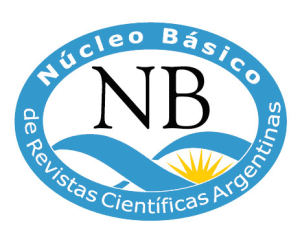Editorial policy and general information
Codes of Ethics:
The InVet journal is committed to adhering to the ethical guidelines outlined in the "Code of Conduct and Good Practices" published by the Committee on Publication Ethics (COPE).
Plagiarism Detection:
InVet-Veterinary Research adopts specific policies for detecting plagiarism. Firstly, authors are required to provide a signed statement confirming that the contents of their work have not been previously published and are not under consideration for publication in another medium. Additionally, the journal employs the Grammarly software, equipped with a plagiarism detection tool that scans over 16 billion web pages. However, this tool is only available for texts in English. For articles in Spanish, the search is conducted through Google Scholar. In addition to these computer tools, each submission received by the journal is initially evaluated by subject-matter specialists.
Digital Preservation Policies:
InVet is committed to preserving and making available the data derived from the publications submitted to the journal. Therefore, it adheres to the provisions of National Law No. 26899 on Open Access Institutional Digital Repositories. Accordingly, all the information and research data submitted to InVet will be uploaded and made accessible through the Institutional Digital Repository of the University of Buenos Aires. This approach allows for the collection, registration, dissemination, preservation, and access to knowledge generated at the university, in compliance with national and international standards, ensuring integration with similar platforms.
Furthermore, InVet journal recommends that authors deposit data related to their research in repositories such as ResearchGate, Mendeley Data, Academia.edu, and FigShare. Since its inception, the journal has also adopted a backup policy involving the periodic storage of all its information on physical media (external hard drive). Additionally, the email account (invet@fvet.uba.ar) is associated with a Google Drive cloud account for data storage, offering unlimited capacity as it is an institutional account.
The submission of papers for publication, the peer review process, and subsequent publication are all provided free of charge for authors.
Access to the content of InVet Veterinary Research is free, and downloadable papers can be retrieved in PDF format from the journal's website and various indexing sites.
It's important to note that the receipt of works for publication does not guarantee their acceptance. All submitted works will be evaluated by two external referees who are not affiliated with the Faculty of Veterinary Sciences of the UBA. In cases of disagreement between the evaluations, a third arbitrator may be consulted. The final decision will rest with the Editorial Scientific Committee. The entire evaluation process is conducted using the "double-blind" model, ensuring the anonymity of both authors and evaluators. Once the review process is completed, authors will receive communication indicating whether their work has been accepted or rejected. The Editor retains the right to conduct editorial revisions.
Once accepted, works become the intellectual property of InVet. Future publication, whether in whole or in part, can only occur with written authorization from the publisher. InVet guarantees authors the right to use their materials for publication in books where they act as authors or editors, with the sole requirement that the source of the original publication be acknowledged.












